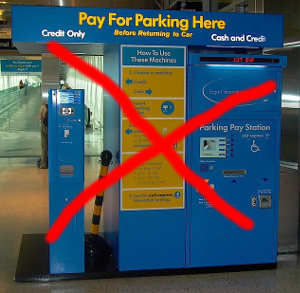New Parking Charges And Mobile App Payments

One UK council has unveiled its intentions to introduce increased parking fees based on the emissions level of vehicles. Lambeth Council in London plans to implement these charges, and numerous other councils across the nation are also considering similar measures.
Before the launch of these new charges, the council conducted a consultation period which included a revised pricing structure for existing residents’ parking permits, which are also based on CO2 emissions.
The fees for these permits were increased in accordance with the new car tax bands, and an additional £140 surcharge was introduced for diesel vehicles that do not comply with Euro 6 emissions standards.
Out of nearly 3,000 responses to the consultation, 59% expressed opposition to the plans. However, despite the objections, Lambeth proceeded with the changes.
They cited air quality as a significant public health concern and emphasized the need for further action to achieve Net Zero goals.
Several councils around the country have already implemented fees based on vehicle emissions, yet another expense to add to the growing list of owning a vehicle, like the cost of an MOT, VED, and insurance policies for example.
As a result, private and motor trade owners of highly polluting vehicles can anticipate paying more than double the fees compared to those with cleaner cars.
Following this announcement there will now be 26 different parking charges for an hour in Lambeth, depending on a car’s tax band.
For instance, parking near Waterloo Station will range from £6.30 to £13.23 per hour, and payment must be made through a mobile phone app.
According to recent research by the RAC, nearly one in five drivers (19%) reported that their local authorities either removed parking payment machines or were in the process of doing so, leaving them with the sole option of using mobile phones for payments.
The survey, which involved 1,900 UK drivers, revealed that 11% stated that some or all parking payment machines had already been removed, while an additional 8% mentioned ongoing consultations regarding their removal.
London drivers were most likely to report the absence or planned removal of payment machines (44% of respondents in the capital), followed by drivers in the East of England (23%) and East Midlands (22%).
The decision to eliminate machines and enforce mobile app payments stems from the fact that many older machines rely on 3G mobile phone signals, which telecom operators are phasing out.
Consequently, councils are faced with the choice of either investing substantial funds in replacing the machines with modern ones or removing them altogether, thereby requiring drivers to make payments via mobile apps like RingGo or PayByPhone or by calling a phone number.
Brighton and Hove, along with Bromley, Enfield, and Harrow in London, are among the known councils that are scrapping all their payment machines.

The RAC’s survey revealed that 59% of respondents, and 73% of those aged 65 and over, expressed anger at the removal of physical parking machines, feeling that they should have the freedom to choose their preferred payment method.
One-fifth of all drivers (20%) felt discriminated against as they were unable to use mobile apps for parking payments, with this figure rising to 30% among those aged 65 and over.
Only 31% of drivers, across all age groups, felt completely comfortable with the removal of payment machines (14% among those aged 65 and over).
When asked about the impact of councils removing payment parking machines, 48% of respondents stated that they would drive to a different car park where cash or card payments were still accepted.
However, a quarter (27%) mentioned that they would struggle to find a convenient alternative parking location, with this figure increasing to 38% among drivers aged 65 and over.
This could suggest that councils opting to eliminate machines may discourage some drivers from visiting town and city centres altogether.







